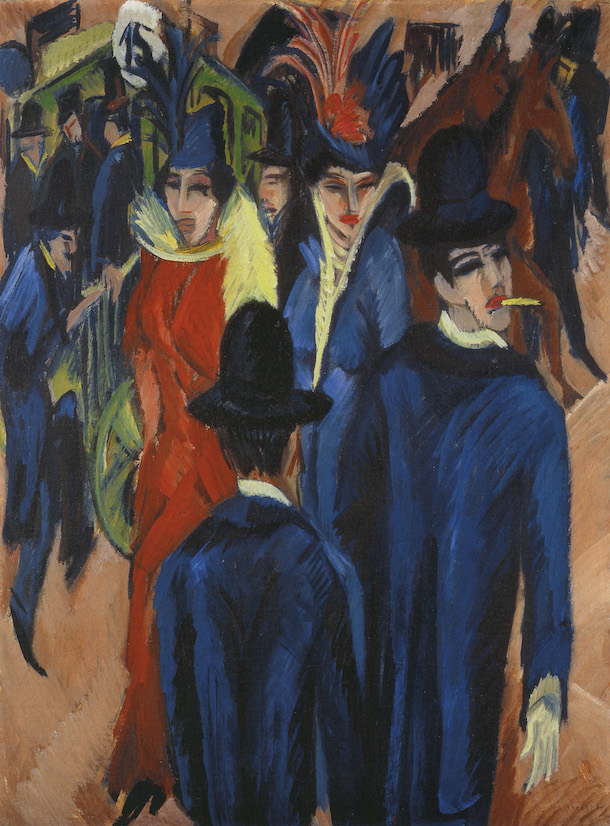Expressionism
"Art is not about beauty, art is an expression."
(Vikram Roy)
Expressionism was an avant-garde movement that developed in Germany at the beginning of the 20th century. As a reaction against Impressionism and academic art, Expressionism refers to art in which the representation of reality is not objective but distorted in order to express the inner feelings of the artist. Expressionist painters wanted to present the world from a subjective perspective and depict the emotional experience that objects and events arouse in them. Browse our curated list of artworks from expressionist painters including Egon Schiele, Ernst Ludwig Kirchner, Edvard Munch and learn more about the movement starting from What is Expressionism?
Die Brücke
Die Brücke was a group of German expressionist artists formed in Dresden in 1905 by four architecture students of the university of Dresden: Fritz Bleyl, Erich Heckel, Karl Schmidt-Rottluff and Ernst Ludwig Kirchner. The name Die Brücke means ‘the bridge’ and was chosen to indicate the group's desire to bridge the past and present. The artists of Die Brücke wanted to reject the traditional academic style and find a new kind of artistic expression by developing further the modern example of expressive colourists like Vincent van Gogh, Edvard Munch, and Henri Matisse. The group had a great impact on the evolution of modern art in the 20th century and it is considered forerunner of the Expressionism.
The artists of Die Brücke developed a common style that was based on vivid colour, emotional tension, violent imagery. They were also influenced from primitivism, which is where the group draws similarities with the Fauves. Both movements shared an interest in the expression of extreme emotion through high-keyed colour that was very often non-naturalistic. Both movements employed a drawing technique that was crude and both groups shared an antipathy to complete abstraction. However the German group was much more provocative than the French movement. The Die Brücke artists depicted scenes of city dwellers, prostitutes and dancers in the city's streets and nightclubs, presenting the decadent underbelly of German society.
We call all young people together, and as young people, who carry the future in us, we want to wrest freedom for our actions and our lives from the older, comfortably established forces - Ernst Ludwig Kirchner.
Text by Cristina Motta
